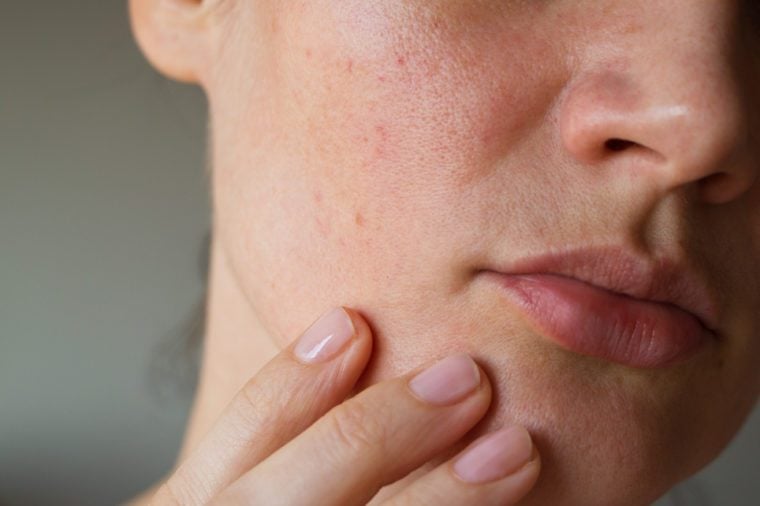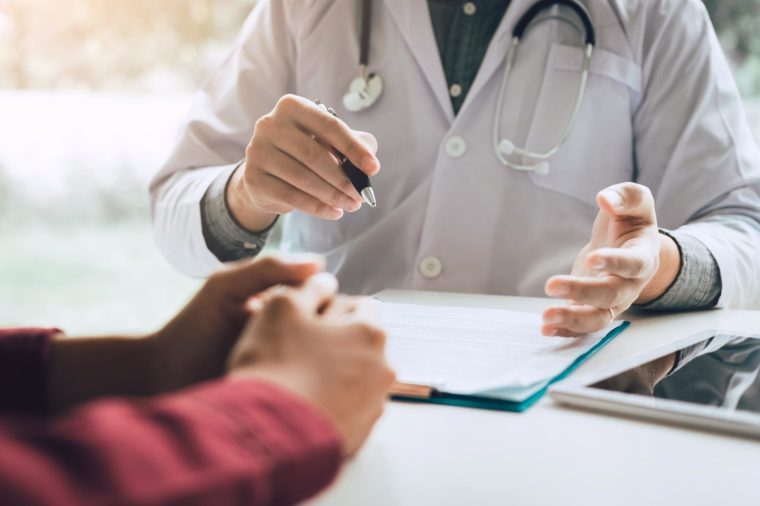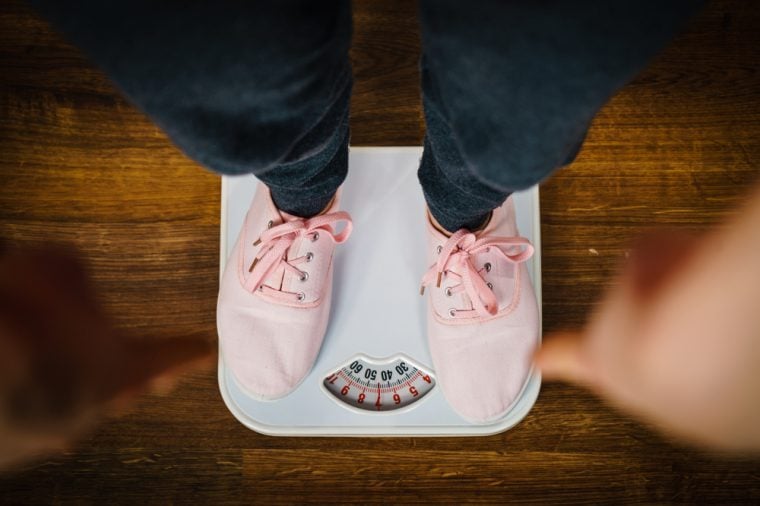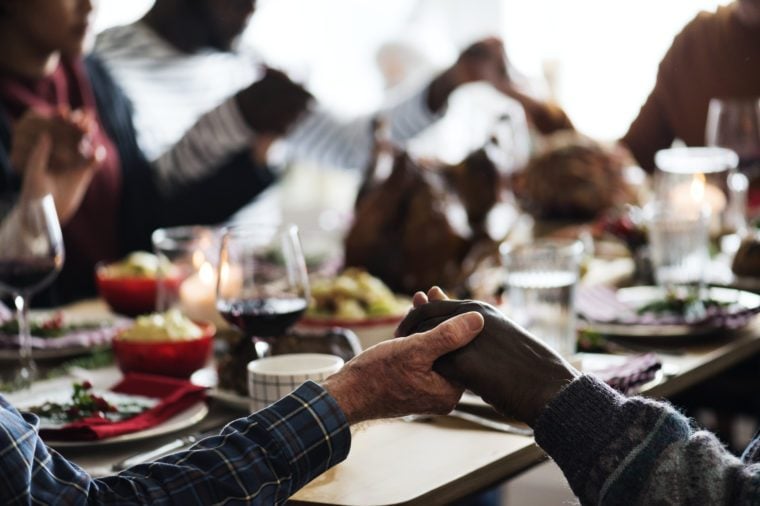
Your skin is yellowing
The term jaundice is used to describe the yellowing of your skin and eyes. If you notice an odd tint, you should contact your doctor. There are lots of non-cancerous reasons you can have a change in skin colour. But in rare cases, a tumour in your gallbladder causes your bile to build up, resulting in this yellow colouration, according to the American Cancer Society. The group stresses that gallbladder cancers (and cancers in the nearby large bile ducts) are exceedingly rare. In 2019, there will be about 12,360 new cases diagnosed and about 3,960 people will die from the disease.
These are the myths about skin tags you need to stop believing.

You feel persistent pain in your stomach
You may think your abdominal pain is simply indigestion or period cramps. And you are probably correct. However, in rare cases, discomfort in the upper-right abdomen region, when combined with other symptoms, can be a sign of gallbladder cancer.
Here’s what oncologists wish you knew about preventing cancer.

You feel like you have a stomach bug
Nausea and vomiting alone are not hidden gallbladder cancer symptoms, but when combined with other signs, like upper abdominal pain and jaundice, they can indicate a problem with your gallbladder. If you develop stomach flu-like symptoms combined with a yellowing of the whites of your eyes, you should definitely see your doctor.
Here are more stomach pains you should never ignore.

Your stomach feels larger
Abdominal bloating is common and can have many causes. However, if you experience an excessive amount of abdominal bloating, in addition to other symptoms, it can also be a sign of gallbladder cancer. A thorough physical exam focusing on your belly and checking for any lumps, tenderness, or fluid build-up (in the presence of advanced disease) can be the first step in figuring out if you have gallbladder disease including gallbladder cancer.
Learn the warning signs you’re having a gallbladder attack.

You have gallstones
A gallstone is a small pebble-like mixture of bile, cholesterol, and calcium that can hinder your gallbladder’s functioning, according to the American College of Gastroenterology. The vast majority of people with gallstones never develop gallbladder cancer but up to four out of five people with gallbladder cancer have gallstones when diagnosed. Bear in mind that gallbladder cancer is so rare that this amounts to a minor, minor subset of people with gallstones.
Don’t miss these signs of cancer men are likely to ignore.

You’re losing weight (without more dieting or exercising)
It is normal to lose your appetite every so often. However, if you notice your appetite refuses to come back, and you are dropping pounds, it might be a good idea to check in with your doctor. Losing your desire to eat meals can be a gallbladder cancer symptom, although there are many other reasons this can happen too.
Learn about other possible reasons for unexplained weight loss.

You have a family history of gallbladder cancer
Risk of gallbladder cancer seems to run in families. Still, the overall risk is still low even if you do have a family history because gallbladder cancer itself is so rare. The American Cancer Society stresses that most gallbladder cancers occur in people without a family history of the disease. Still, it is important to remember that family history is always a silent player in your future health. Still, when it comes to your genetic risk, make sure you know these cancer myths you can safely ignore.
Next, check out these foods for a healthy gallbladder diet!